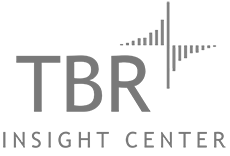Quick Quantum Quips: Hardware entrants gain VC funds while established innovators partner across architectures to secure a place in the broader quantum ecosystem
The quantum market changes rapidly, and the hype can often distract from the realities of the technological developments. In our new monthly newsletter, Quick Quantum Quips (Q3), TBR will brief readers on the latest market announcements, stripping that hype to dig deeper into how recent events will impact the market as a whole. Contact Stephanie Long ([email protected]) or Geoff Woollacott ([email protected]) to schedule a time to chat on any of the insights below.
November 2019 developments:
- Microsoft partnered with IonQ and Honeywell, which will provide the foundational quantum hardware for Microsoft’s Azure Quantum cloud. This was a major announcement in the quantum computing space in terms of real-world application of the technology. Microsoft can now tie its traditional cloud capabilities in with quantum offerings, addressing customer demands for a hybrid computing and flexible quantum experience. TBR notes that IonQ and Honeywell both focus on trapped ion quantum computing, suggesting Microsoft deliberately chose these vendors for their unique hardware capabilities. Partnerships in the quantum space have been ramping up in general, especially between hardware and software players, as these vendors take lessons from classical computing speedbumps and streamline their processes for the quantum era.
- Fermilab launched a new Institute for Quantum Science, reaffirming the U.S. government’s interest in leveraging the technology for various uses. Fermilab is more formally known as the U.S. Department of Energy’s Fermi National Accelerator Laboratory and has been investing in particle physics and accelerator technology for more than 50 years.
- IBMcontinues to pursue its cross-technology strategy to partner for accelerated innovation. We have seen this strategy play out for IBM in various markets, including blockchain and AI with Watson. Most recently in the quantum space, IBM unveiled a partnership with the Unitary Fund to jointly develop open-source projects for quantum computing. Additionally, IBM’s recent partnership with IonQ regarding QisKit reinforces IBM’s overall vendor agnosticism despite targeted hardware investments in superconducting quantum computing. The vendor seeks to capitalize on the most lucrative aspects of the larger quantum market.
- PsiQuantum is a stealth quantum startup focused on developing quantum hardware. Of significance is PsiQuantum’s ability to recently raise $230 million while remaining relatively quiet, suggesting the startup’s road map is highly desired by investors. It is likely that the investment PsiQuantum received is one of the largest in the quantum industry to date, making this even more significant. PsiQuantum has offices in the U.K. and the U.S. and is developing a general-purpose silicon photon quantum computer. Its U.S. location in Palo Alto, Calif., positions the startup nicely within Silicon Valley, where it can readily access chip manufacturing expertise. PsiQuantum’s founder, Jeremy O’Brien, is a professor at the University of Bristol and the director for the Centre for Quantum Photonics.
- Atos
partnered with Zapata
with the goal of delivering an end-to-end quantum computing solution by
combining Zapata’s Orquestra quantum software with Atos’ Quantum Learning
Machine. The solution is expected to be able to address specific vertical
market demands. TBR believes the software functionality will be tweaked to
enable this vertical differentiation.
That is all for this month’s Quick Quantum Quips from TBR. If you wish to receive more detailed information around the quantum computing market, please inquire about TBR’s Quantum Computing Market Landscape, a semiannual deep-dive into the quantum computing market.


Leave a Reply
Want to join the discussion?Feel free to contribute!